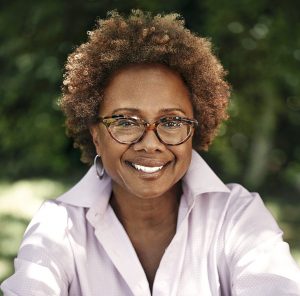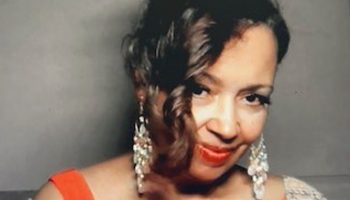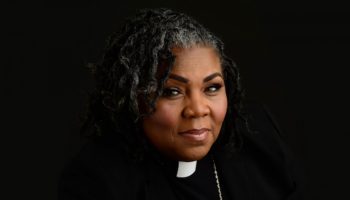
NICK DANLAG – STAFF WRITER
As a mixed-race Chinese-Jamaican American, Paula Madison says she wants to talk more about the cooperative relations that have existed between Blacks and Asians for many years in the America.
Madison’s maternal mother is African-Jamaican and her maternal father is Chinese, which she said surprises some people.
“Someone said, ‘Well, wait a minute. That would mean your mother was biracial, Black and Chinese, 90 years ago.’ I said, ‘Yeah, they had mixed people back then.’ Then he said, ‘I thought that happened more recently,’ ” Madison said.
Madison is the chief executive officer at Madison Media Management, the former owner and CEO of the Los Angeles Sparks, and the former executive vice president and chief diversity officer of NBCUniversal Media.
She is the first speaker for the 2021 African American Heritage House Speaker Series, and she’ll deliver a lecture at 1 p.m. Friday, July 2, on the CHQ Assembly Video Platform. She’ll speak on the Week One theme “China and the World: Collaboration, Competition, Confrontation?” and discuss her perspective on China’s global initiatives.
“The G7 has decided to build a narrative around China being an enemy to developed nations by competing in areas of technology, supply chain, et cetera,” Madison said. “How did China become a bigger enemy of the U.S. than Russia, which has been hacking into U.S. government and corporate systems for years now?”
Madison said that Chinese people have been coming to the Americas and Africa since the 1830s. In the beginning, Chinese women and their families were not allowed to accompany the men.
“Most often when you found Chinese women who had also migrated, it was largely because they had been forced into being sex workers, and not for the Chinese men, but for the Europeans who were the captains and the sailors,” Madison said.
One of Madison’s goals is to deconstruct the assumption that usually when a person has Asian and Black parents or grandparents, it is the result of an American soldier being stationed in an Asian nation.
She also wants to dispel the myth that Black people are more responsible for the recent attacks on elderly Asians in the United States.
She said that less than 10% of Asian hate attacks are committed by Black people, with around 70% perpetrated by white men.
“Those don’t end up being publicized,” Madison said. “That is why I said I think it’s important that people understand that we (people of Asian and Black diaspora) are in large numbers.”
Madison decided to become a journalist when she realized the stories told about people of color in newspapers and cable news were very skewed.
“Every Black person depicted in the news was a criminal or an entertainer,” Madison said. “That struck me as not only untrue but outrageous.”
When Madison was a sophomore in college in the 1970s, she was walking down a street a few blocks from her house. As she was approaching Lenox Avenue near a mosque, she heard gunshots, then a busload of police officers and a helicopter overhead.
“Having grown up in an environment like that, I immediately got to the sidewalks,” Madison said. “I was actually on my stomach on the sidewalk.”
She then saw a police officer racing out of the tactical bus toward the mosque. Then, the imam of the mosque came out.
“On that block, which I knew to be a haven for drug dealing, I heard windows opening,” Madison said. “And then as I looked up, I could see barrels of guns, pointed out the windows at the police officers. So what I was in the middle of was a near war. Police were attacking the mosque. The neighborhood, in a community that was supposed to be overridden with drugs, was going to defend Muslims.”
Madison then crawled down the street, got to the corner and then saw the imam stand up on top of a car.
“(He) shouted something like, ‘Brothers and sisters. No. This is what they want you to do. They want to start a war. Please put your guns down. go back in,’ ” Madison said. “That is what happened.”
Madison said she turned around and went back to her mother’s house.
“My mother was a consummate news junkie. She listened to news radio all day; read all the newspapers. When I told her what had just happened, she said, ‘It’s not on the news.’ ”
At first, Madison figured that the story of solidarity would be on the evening news, but a report never appeared in any news media.
“That’s when I said, ‘OK, so what they’re willing to do is publish stories about Black people in Harlem when we are arrested or tagged with criminal behavior,’ ” Madison said.
As she later learned, two officers tried to force their way into the mosque and shot at the doors, which she thinks were steel. The bullets ricocheted and hit them.
“Therefore, ‘officer down,’ that call went out,” Madison said. “But there was no way that this was not planned, because a busload of tactical officers were ready, and (there) was a helicopter above. That was what convinced me.”
For the next 30 years, Madison worked in the journalism industry, including 22 years at NBC, where she was executive vice president and chief diversity officer.
When Madison and her family were asked to consider investing in the Los Angeles Sparks, they declined at first.
“Within a week or so, Don Imus called the Rutgers (University) women’s basketball team ‘nappy-headed hoes’ on his CNBC/CBS radio program, and I was outraged,” Madison said. “At that point, as a woman of African descent who wears her hair in an Afro, I went back to my family and suggested we do indeed invest in women’s basketball.”
Her more recent work involves raising more awareness of Black and Asian diaspora. She said both of the TV series she is involved in developing focus on this intersection.
She recommends people pay attention to the pledges of business to support diversity and inclusion.
“I believe that most just paid lip service and reapportioned already pledged philanthropy,” Madison said. “I’m not seeing massive changes.”
In her lecture today, Madison will talk about China’s global initiatives, including how the country has donated one vaccine to developing nations for every two administered in China.
“Biden pledged 500 million doses to (developing) nations at the G7 summit, while China had been doing so for many months. Why delay the donations? Is it because many in the U.S. will not get the vaccines?” Madison said. “China’s role as a global leader is not looked upon with such animosity as the G7 nations are displaying. I, as a Black and Chinese woman, have a different view of my grandfather’s homeland, and I was asked to share it.”




